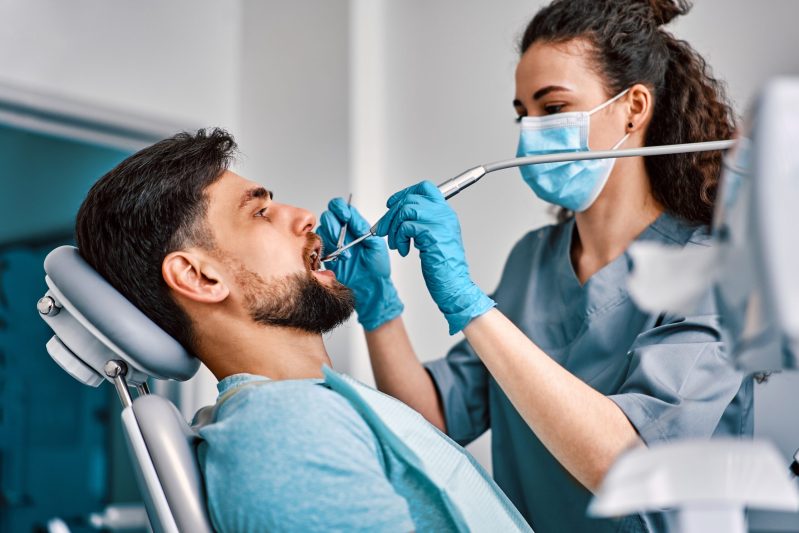A Pakistani dentist may be eligible to get licensed in Hong Kong, but it depends on several factors and requires following a specific process. Here’s a breakdown:
General Requirement:
Any person wishing to practice dentistry as a dentist in Hong Kong is required to apply for registration to the Dental Council of Hong Kong (DCHK) in accordance with the Dentists Registration Ordinance.
Licensing Examination is Key for Most Overseas Graduates
All dental graduates who received their dental training outside Hong Kong are generally required to pass the Licensing Examination set by the Dental Council of Hong Kong to be eligible for full registration.
This examination has multiple parts: a written test, a practical test, and a clinical examination.
The Dental Council may impose conditions related to assessing or improving a person’s professional dental knowledge before allowing them to take the Licensing Examination.
Part I – Written Test: This part assesses the candidate’s knowledge in various dental subjects through two multiple-choice question papers. The subjects covered include applied basic sciences, medicine and surgery in relation to dentistry, dental pharmacology and therapeutics, medical emergencies, oral surgery, oral medicine, oral pathology, paediatric dentistry, orthodontics, conservative dentistry, periodontology, preventive dentistry, dental public health, and prosthodontics.
Part II – Practical Test: This part evaluates the candidate’s practical skills in a laboratory setting.
Part III – Clinical Examination: This part assesses the candidate’s clinical competence through patient-based assessments.
Therefore, a Pakistani dentist aiming for full registration via the Licensing Examination must successfully complete all three parts.
IMPORTANT NOTE
There are usually two sittings of the Licensing Examination per year.The fee for each part of the Licensing Examination is currently HK$10,650 (as of January 1, 2025).
Pakistani Dentist require applicants for the Licensing Examination to have:
- Satisfactorily completed not less than 4 years of full-time dental training of a type approved by the Council.
- Hold a dental degree or a dental qualification acceptable to the Council.
Pakistani Dentist may work in a variety of capacities.
Private Dental Clinics: This is a common career path for licensed dentists in Hong Kong. They can work as an associate dentist in an established private practice or eventually establish their own dental clinic. This allows for a wide range of general and specialist dental services depending on their qualifications and the clinic’s focus.
Public Dental Clinics: The Hong Kong government operates a network of public dental clinics under the Department of Health. Licensed dentists can work in these clinics, providing general dental care to the public. The focus in public clinics is often on primary dental care and promoting oral health.
Hospitals: Dentists may find employment in public or private hospitals in Hong Kong. Within a hospital setting, they might be involved in oral and maxillofacial surgery, treating patients with complex medical conditions requiring dental care, or providing emergency dental services.
Academic Institutions: Dentists with further qualifications and a passion for teaching and research can pursue careers in dental schools or universities in Hong Kong, such as the Faculty of Dentistry at the University of Hong Kong. They could be involved in educating future dentists, conducting research in various dental fields, and providing clinical supervision to students.
Specialist Practice: If the Pakistani dentist has completed postgraduate training and is recognized as a specialist by the DCHK in a specific field (e.g., orthodontics, periodontics, prosthodontics, oral and maxillofacial surgery, paediatric dentistry, dental public health, endodontics), they can work as a specialist in private practice, public clinics, or hospitals, focusing on their area of expertise. The recognition as a specialist often involves further examinations and meeting specific criteria set by the DCHK.
Non-Governmental Organizations (NGOs): Some NGOs in Hong Kong focus on providing healthcare services to underserved populations. Licensed dentists may find opportunities to work with these organizations, offering dental care to those in need.
Insurance Companies: While less common for direct patient care, dentists with experience might find roles as dental consultants for insurance companies, assessing claims and providing expert opinions.
Research: Dentists with a strong interest in scientific inquiry can pursue research-oriented positions in universities, research institutions, or even within private companies involved in dental product development.
CONTACT
MAHMOOD SALEEM
Advocate High Court
Immigration Consultant
Call 0321-4314001
WhatsApp 0333-5769655
